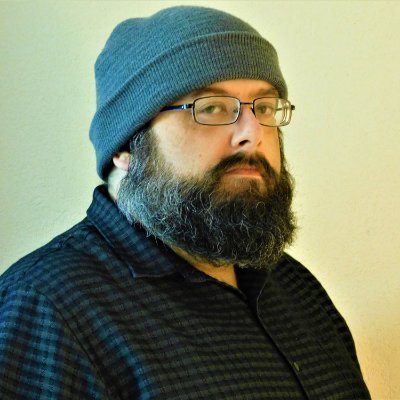Fantastic Four: Life Story is a generational biography about a family and how they helped each other survive
From the birth of the Fantastic Four in the '60s to how they have grown and overcome in modern times
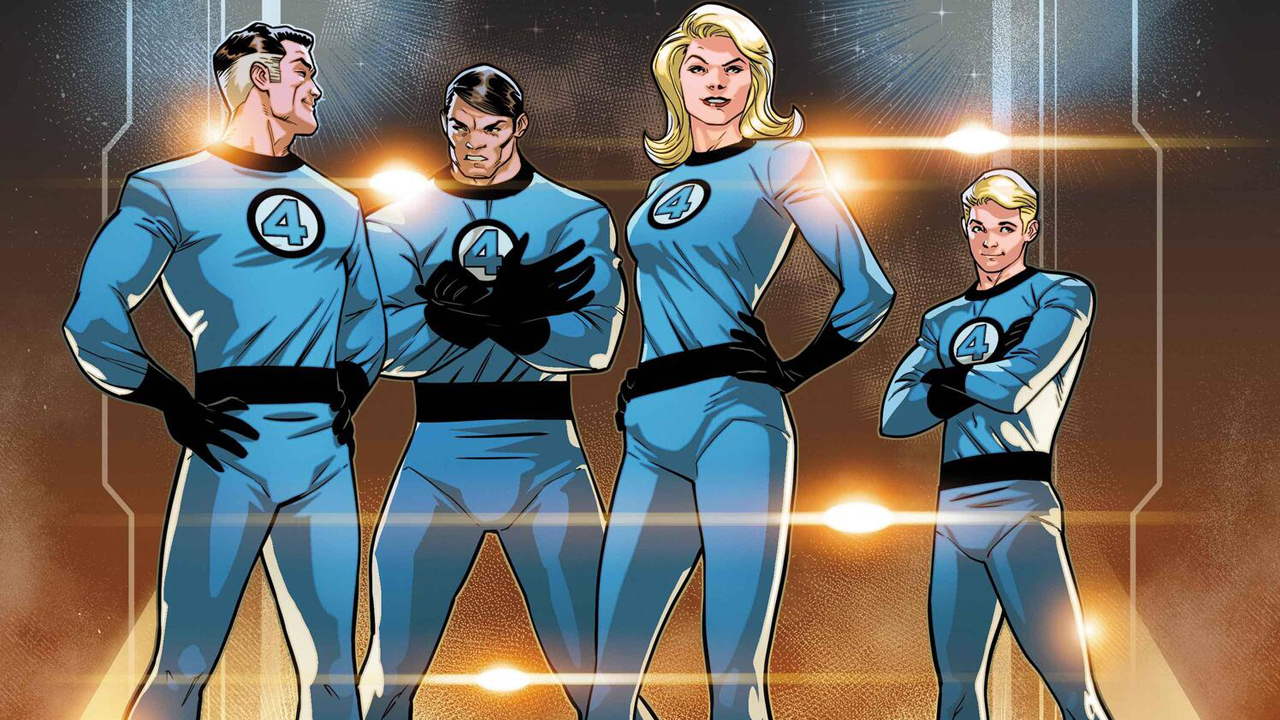
The first family of Marvel Comics, the Fantastic Four, will have their story told in an evocative and timeless new way with the upcoming prestige series Fantastic Four: Life Story.
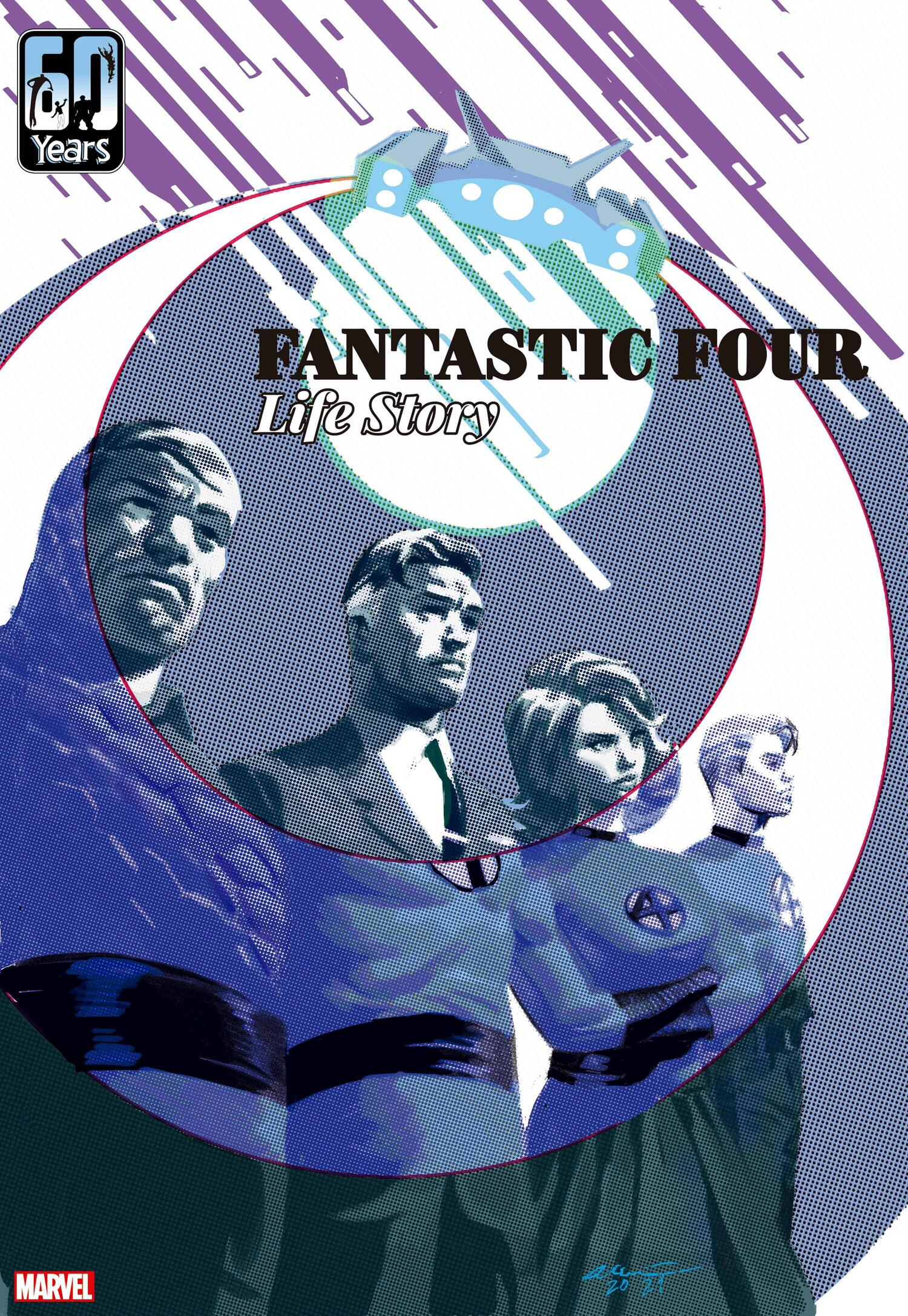
Writer Mark Russell and artist Sean Izaakse are revisiting the Richards' family story like a great movie adaptation - taking the core elements and characters, and fashioning it into a new, stylistic way to bring out the core themes and perhaps some new resonance to the classic story.
Like the previous Spider-Man: Life Story, Fantastic Four: Life Story follows the family over time - specifically, with each issue taking place in one decade. For this six-issue series, that means the '60s, the '70s, the '80s, the '90s, the '00s, and '10s.
With Fantastic Four: Life Story #1 going on sale May 19, we spoke with Russell about this 'big picture' approach of this Cold War era superteam and he told us how it all centers on how a family grow together and apart after surviving a freak accident that made them united not just my blood, but by trauma.
Newsarama: Mark, what made you want to write the Fantastic Four - and do it in this Life Story structure?
Mark Russell: One of the things I love about the Fantastic Four is that it's first and foremost about the relationships of its characters, rather than their powers. But a key ingredient to any relationship is time. 'Time' being another word for stakes.
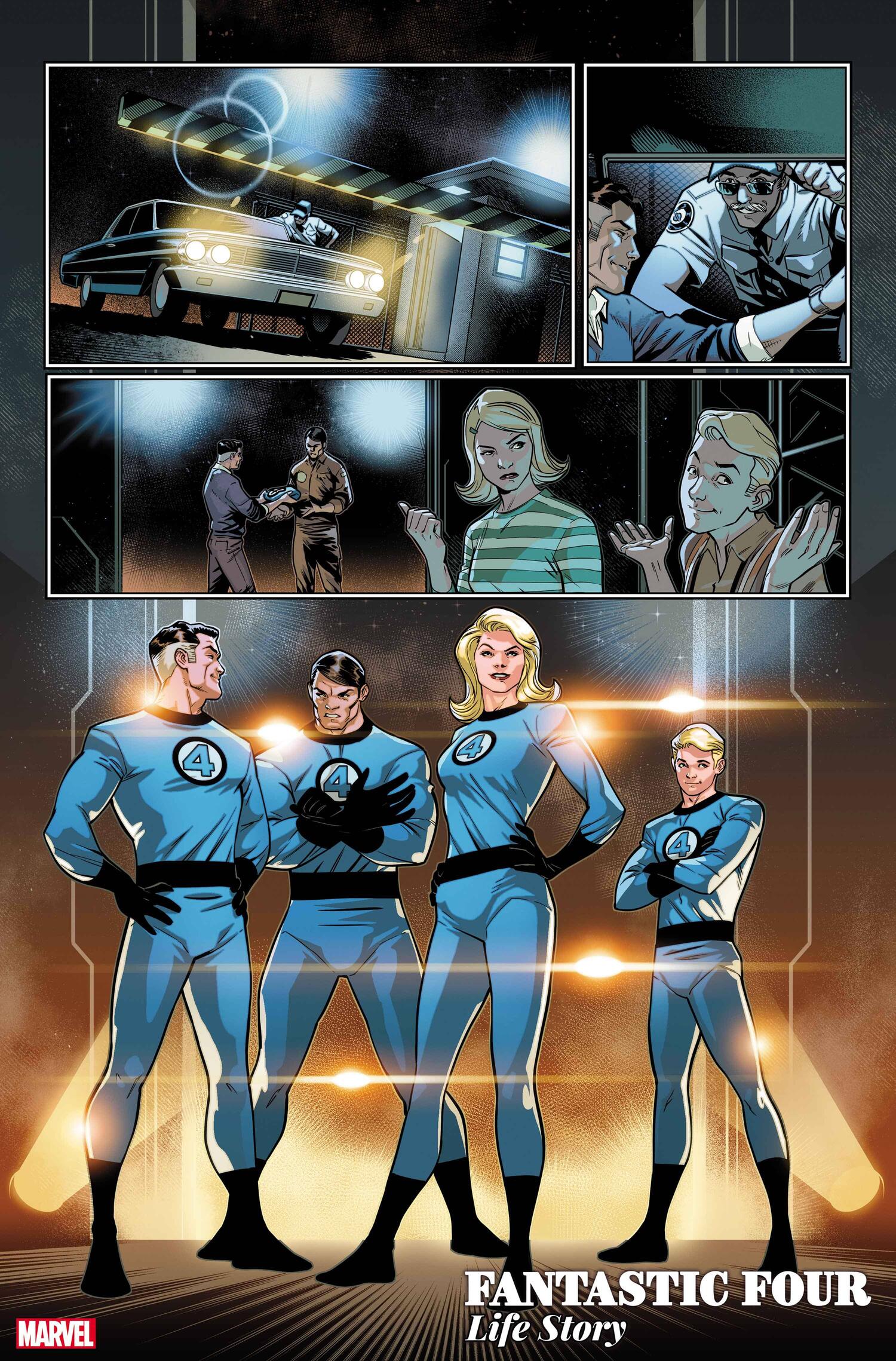
So being able to show them age in real-time, let their relationships meaningfully evolve over six issues, gives their story an extra dimension, I think.
Comic deals, prizes and latest news
Get the best comic news, insights, opinions, analysis and more!
Nrama: You have a very diverse oeuvre, so where does Fantastic Four: Life Story sit with you in what you're wanting to do with tone, perspective, and characterization?
Russell: It's a little different than most of my work because it's not overtly satiric.
Fantastic Four: Life Story is mostly about how trauma creates a family of its survivors. How our family are not necessarily the people we choose; in fact, sometimes we can't stand to be around them, but they remain family nonetheless simply because they understand us better than others do. So this story is more about how these characters grow together and apart after surviving a freak accident that pushed them all together for the rest of their lives.
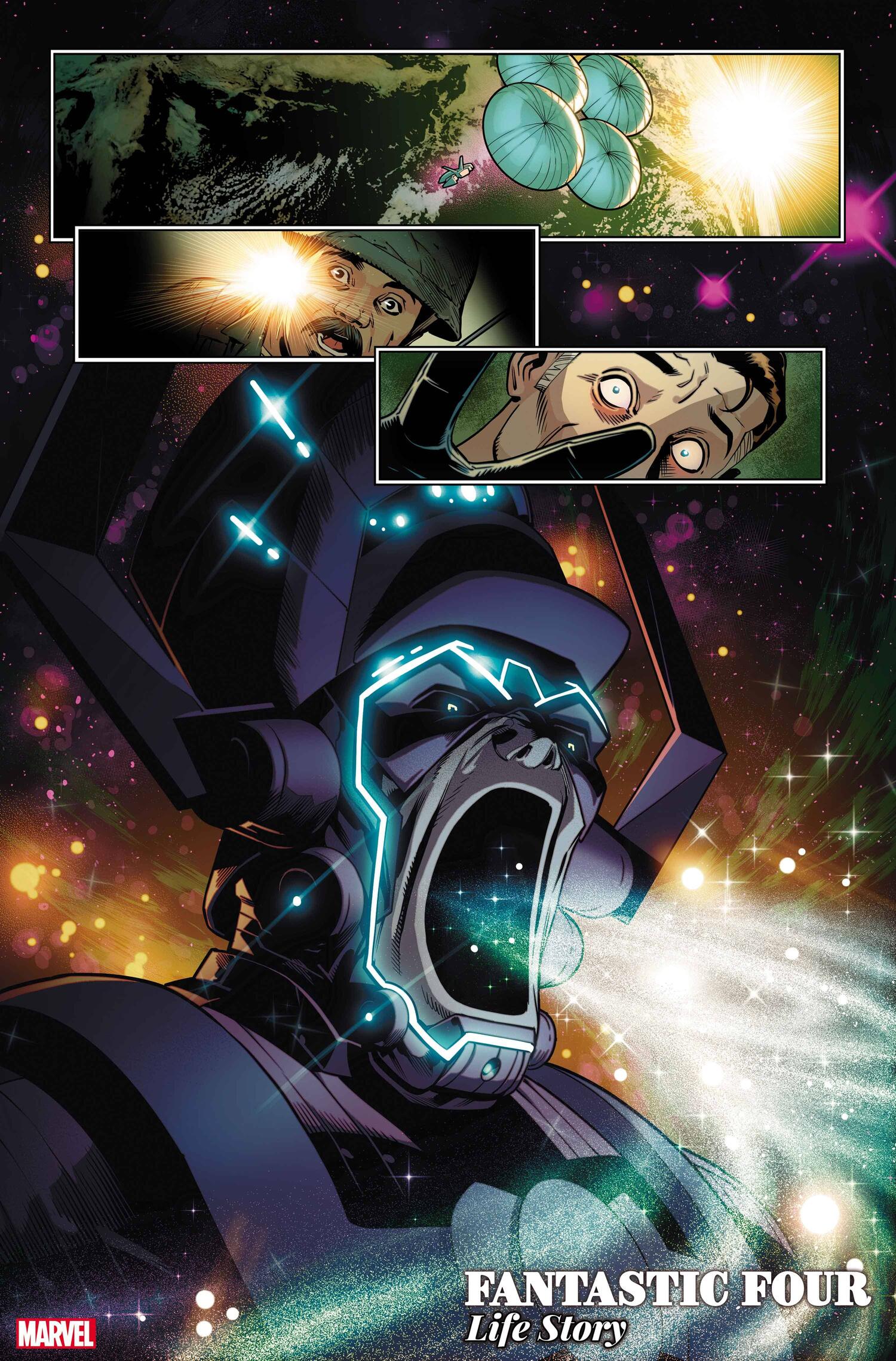
It's probably more of an emotional story than what people would expect.
Nrama: This six-issue series tells their story, with each issue roughly taking place in a different decade - starting in the '60s. Some have pigeonholed the FF has throwback and of the '60s. How do you think this decade-by-decade structure will work to modernize them, so to speak, with each issue?
Russell: Nobody writing the Fantastic Four in the '60s thought, 'Okay, this is a story about the Fantastic Four set in the '60s.' Or the '70s, '80s, etc. They didn't consciously set the characters in their place in history because it wasn't history, yet. So doing a project like this allows me to do that more intentionally.
It allows me to look back with hindsight on what events and attitudes were important to those decades, how they affected what came next, and let the Fantastic Four inhabit the world of that time.
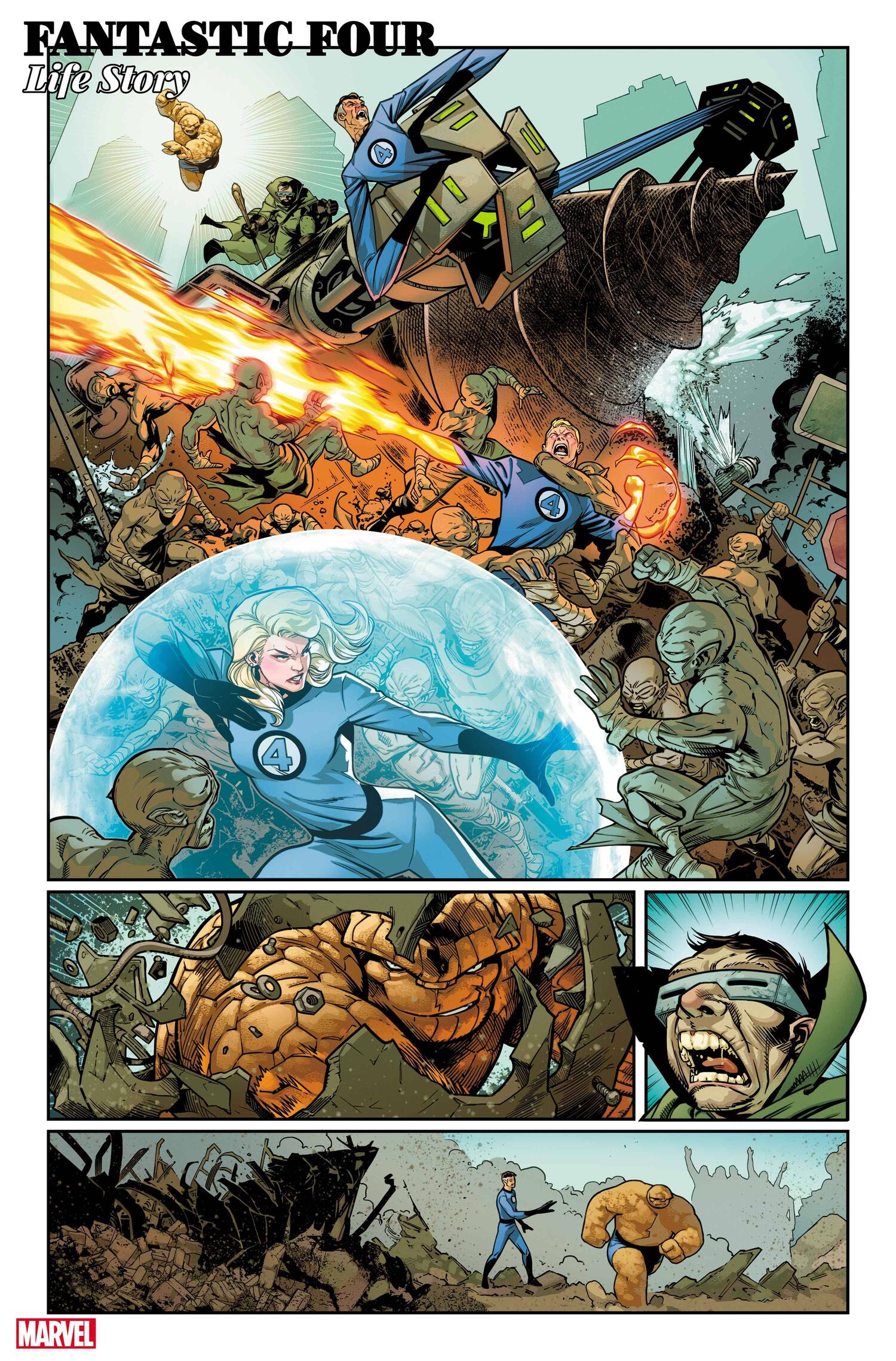
The first half of the series can be thought of as how the world in those changing times affected the Fantastic Four. The second half is more about how the Fantastic Four changed the world.
Nrama: Marvel says this will present their story in a "radical new way". Do you think what you're doing is radical - and if so, can you give an example of that?
Russell: What I do never seems radical to me. It always seems like the natural approach in the world to a problem that I don't quite understand.
I think part of my charm, to those who find me charming, is that I don't really know what I'm doing. I'm still relatively new to comics so I never sit down thinking, 'I could bang my way through this superhero comic in my sleep.' So, for better or worse, I have to think conscientiously about what I'm trying to build and how to make it using the tools I've been given. The result might not always be good, but it's usually novel.
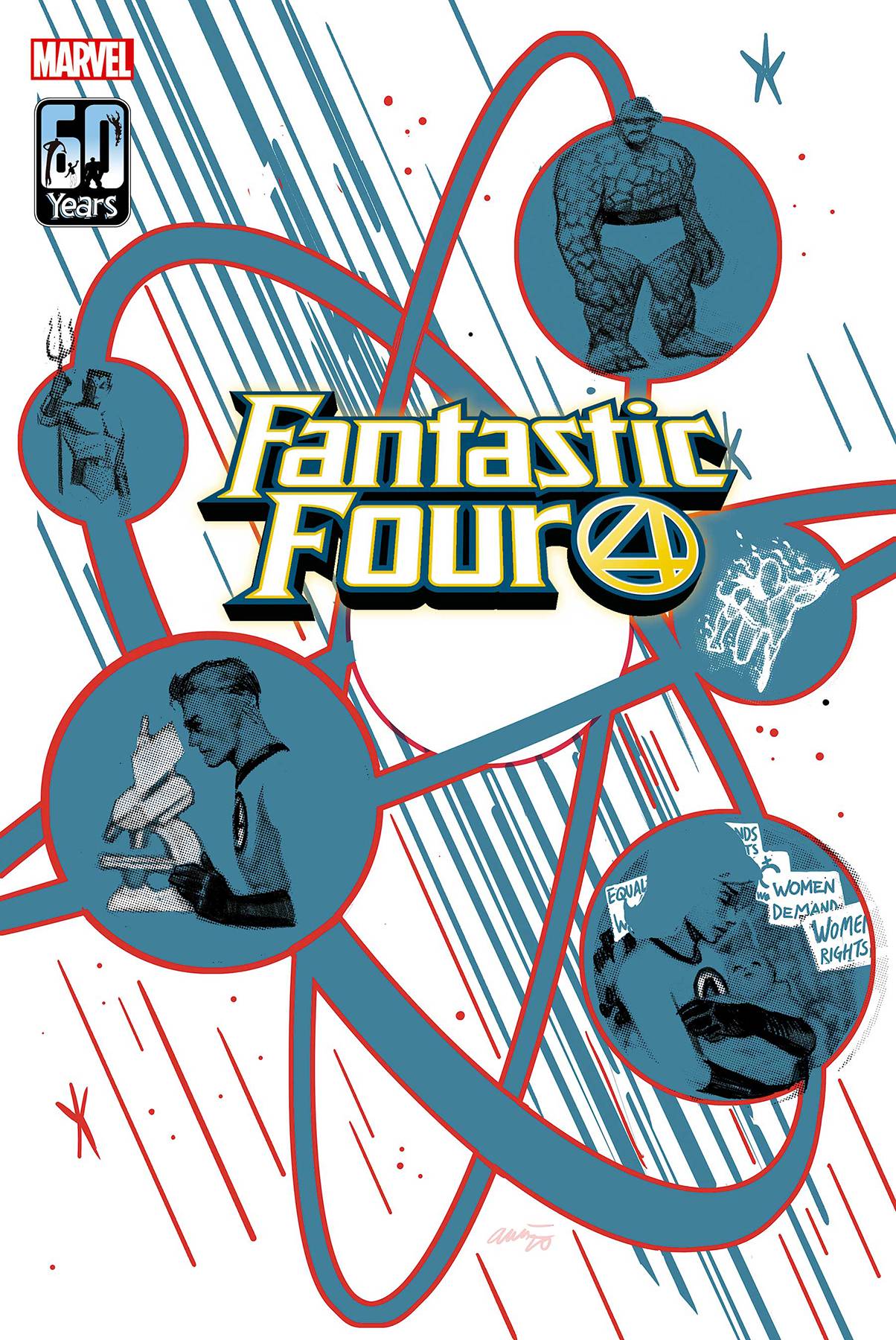
If you make a habit of doing projects that take you further away from what you know you can do, it keeps you fresh. Innovation just being another word for trying something you aren't quite ready for.
Nrama: How are you grappling with the FF's core idea of family in hardship and unique situations?
Russell: To me, it's a family story built on survivorship. They are coping with the fallout of a disaster that simultaneously derailed their lives and turned them into some of the most famous people on the planet. It's like they survived a plane crash and became the Beatles all on the same day. So, like it or not, they have no one to turn to but each other to make sense of their unique tragedy.
Nrama: That being said, what can you say about the chance to show them off in cool scenarios and with the usage of their powers? You've got Sean Izaakse drawing whatever you put into that script, so you're loaded for spectacle.
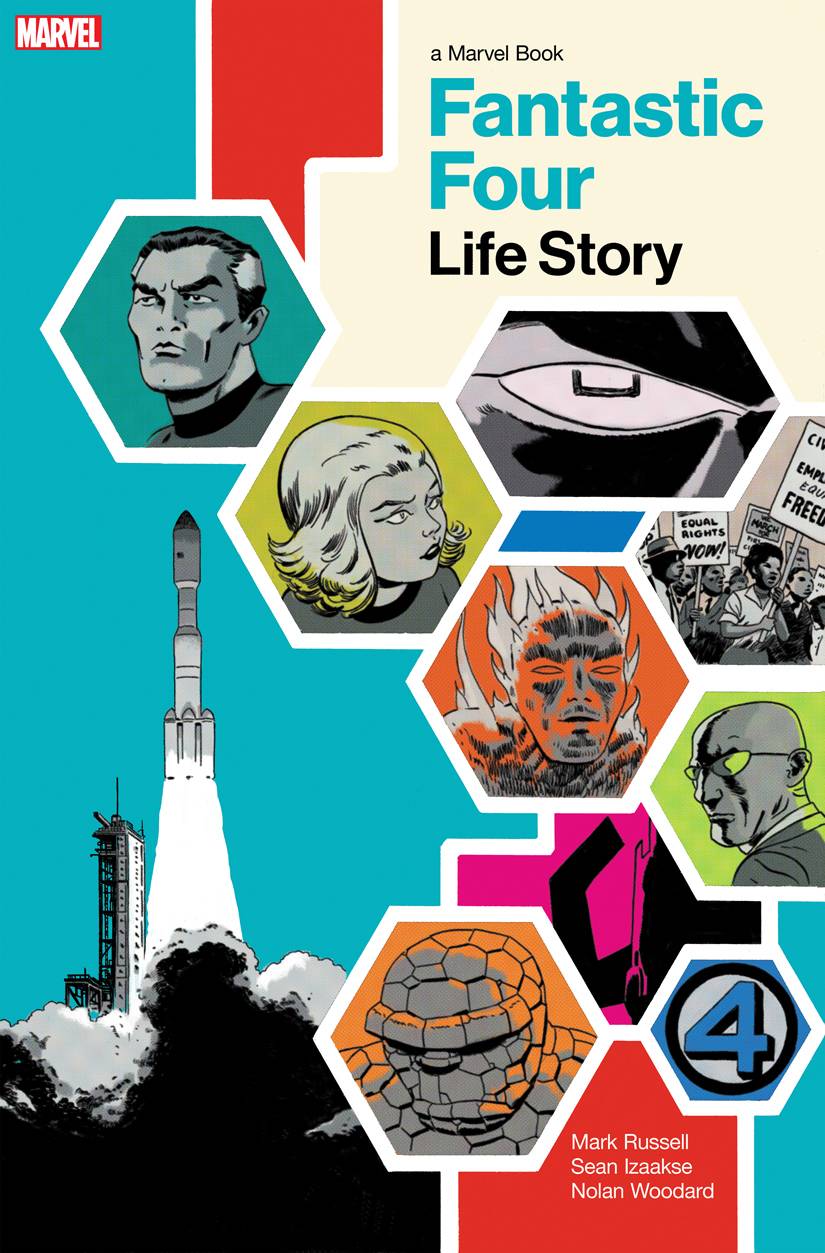
Russell: They were very lucky to all get powers that complemented each other instead of simply becoming four Human Torches. But having these complementary powers gives you the chance to put them in situations where you never know who will have to come through.
Invisibility might seem like the short straw in terms of their powers, but there are situations where it's immensely more valuable than the other powers. Plus, it allows you to get in your opponent's head in a way the other powers don't. Sue could be in the room, using her invisibility, or she could be somewhere else, doing something entirely different.
So their complimentary powers exponentially increase the number of situations where somebody is going to come through.
Nrama: This has a lot of facets to it, but what's the big goal you're aiming for with this?
Russell: I want people to feel like they've read a book, not just about characters they love, but a generational story about a family and how they helped each other survive.
Read the best Fantastic Four stories of all time.
Chris Arrant covered comic book news for Newsarama from 2003 to 2022 (and as editor/senior editor from 2015 to 2022) and has also written for USA Today, Life, Entertainment Weekly, Publisher's Weekly, Marvel Entertainment, TOKYOPOP, AdHouse Books, Cartoon Brew, Bleeding Cool, Comic Shop News, and CBR. He is the author of the book Modern: Masters Cliff Chiang, co-authored Art of Spider-Man Classic, and contributed to Dark Horse/Bedside Press' anthology Pros and (Comic) Cons. He has acted as a judge for the Will Eisner Comic Industry Awards, the Harvey Awards, and the Stan Lee Awards. Chris is a member of the American Library Association's Graphic Novel & Comics Round Table. (He/him)
